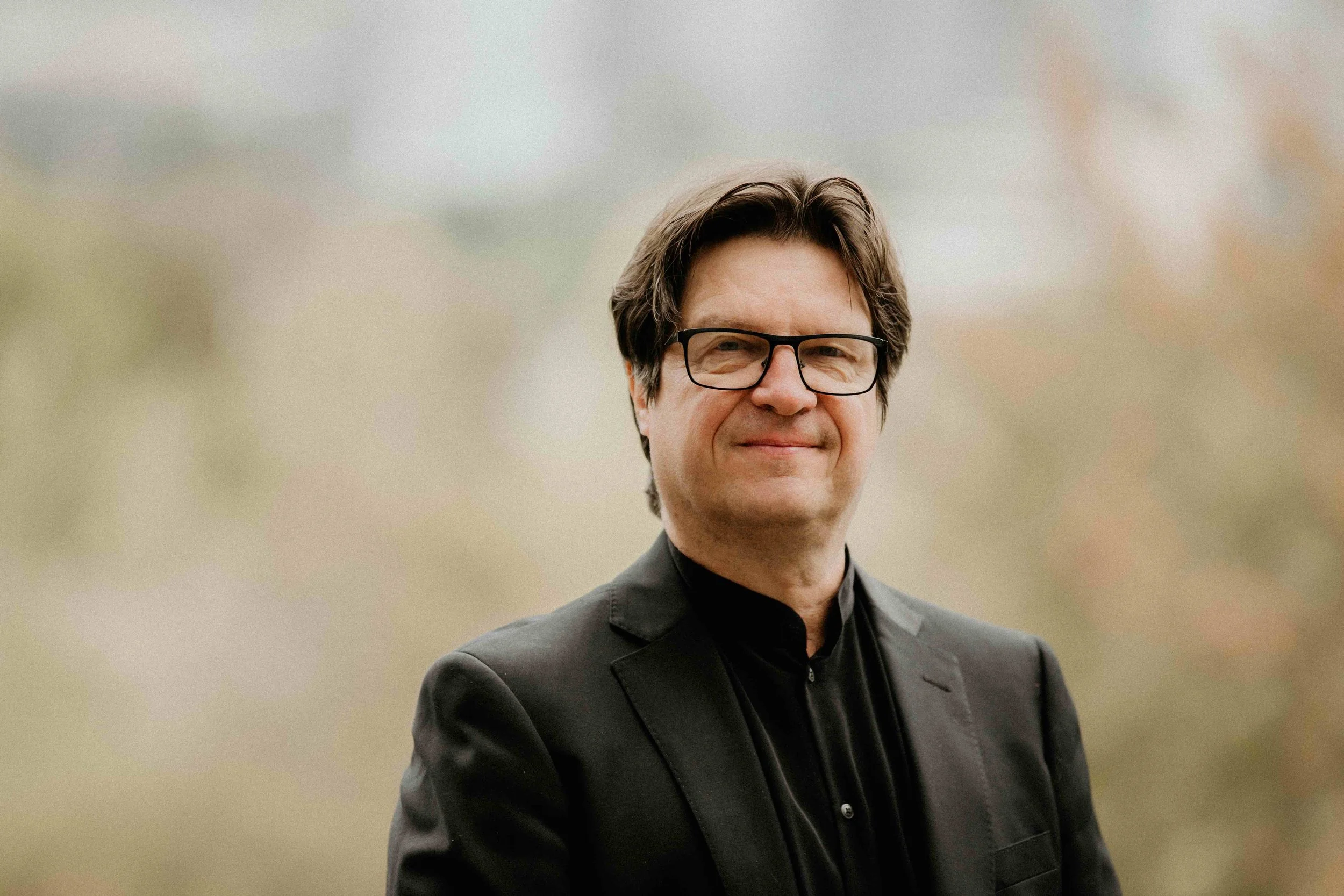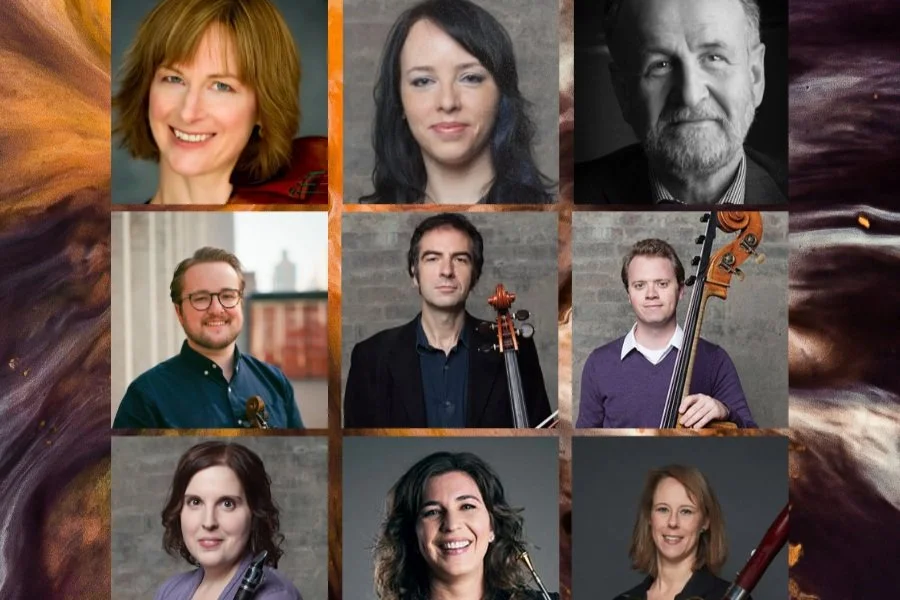Guitarist Gwenifer Raymond's singular fingerstyle playing draws on everything from pre-war blues to folk horror
Rising Welsh-born, Brighton-based artist’s music manages to be both earthy and otherworldly
Gwenifer Raymond was already well on the road to her own style before she heard the name John Fahey.
BlueShore at CapU presents Gwenifer Raymond at the BlueShore Financial Centre for the Performing Arts on October 1
YOU COULD BE FORGIVEN for thinking that Welsh guitarist Gwenifer Raymond must be a great admirer of the late John Fahey, for she is. Although still unknown to the public at large, Fahey was one of the rare performers to have more or less single-handedly invented an entire genre of music, in his case the tuneful but somewhat abstract form of solo fingerstyle guitar known as American Primitive. Raymond’s own approach fits comfortably under that umbrella, and she has even gone so far as to borrow one of Fahey’s signature songwriting strategies: writing an elegy—or, to use the late American’s term, a “requiem”—for a dead mentor.
But is Raymond merely a Fahey copyist? Not a chance. She was already well on the road to her own style before she’d even heard his name.
“It was sort of a gradual thing, really, because I’d been playing in punk bands for quite a long time, but after a while I started getting curious about investigating different types of music—and specifically things that I’d read were inspirations for the stuff I liked,” she explains in a telephone conversation from her Brighton home. “And a very common thing seemed to be this pre-war blues: guys like Leadbelly, Skip James, Blind Boy Fuller, and Mississippi John Hurt, those sorts of dudes. I kind of wanted to investigate that.
“As a guitarist, from a technical point of view, for a while I was entirely convinced that on, like, John Hurt tracks there was more than one guitar player present,” she continues. “So when I discovered that there wasn’t, I was like ‘Well, I need to know how he’s doing this.’ In my research I discovered that there was this thing called alternating-thumb style, so I went out and bought a bunch of Stefan Grossman tab books, and just started learning it.”
That, in turn, led her to a guitar teacher in the Welsh capital, Cardiff. “He taught all sorts of things, but he also happened to have a sideline: he was a really great alternating-thumb player,” Raymond says. And after a few lessons, she felt comfortable enough to play him some of the music she’d been writing at home. “I was going ‘What do you think of this? I’ve been doing these instrumentals.’ And he went ‘Ah, that sounds like this guy John Fahey.’ He played me some John Fahey tracks, and that’s kind of where everything changed. I realized that it was a thing that people might be interested in.”
It was more of a case of convergent evolution than deliberate emulation, Raymond stresses, and the differences between the two musicians are as marked as the similarities. Fahey’s most beloved requiem was dedicated to one of the younger musician’s early inspirations, Mississippi John Hurt, and Raymond herself wrote a “Requiem for John Fahey” on her debut full-length, You Never Were Much of a Dancer. “Eulogy for Dead French Composer”, from Raymond’s new Strange Lights over Garth Mountain LP, pays homage to proto-minimalist composer Erik Satie, however.
Tellingly, Raymond considers herself a composer who happens to write for guitar. And she rarely improvises, whereas Fahey would happily work 20-minute guitar ragas into his sets, and in later life turned towards free improvisation on electric guitar. Both performers draw on the uncanny, but Fahey tapped into the haunted world of the Southern Gothic, while Raymond’s sources are more specifically British.
“I love horror,” she says, laughing. “I’m a huge horror-movie nerd. And in particular, I love folk horror, which is obviously a very British genre, really. There’s a lot of influence from that kind of stuff, which I think is one of the great exports of the U.K., and especially Wales and the Celtic countries. There’s this kind of esoteric, supernatural horror, and I guess I just see everything in that context. Especially instrumental music; folk instrumental music, in particular, does a lot to convey the landscape that these things come about in.
“I don’t know if you’ve ever been to Wales,” she continues. “It’s very scenic, but most of the time it’s raining, and it’s dark. So a lot of my childhood memories are from rolling around in these misty fir forests—the sort of place where you would absolutely shoot The Blood on Satan’s Claw, or something like that. It’s kind of all melded in my head.”
Raymond’s preoccupations are revealed in the way that she uses ringing overtones and high harmonics to add a shivery, spectral dimension to her music, which somehow manages to be both earthy and otherworldly. She is also increasingly using modal folk melodies in place of familiar country blues motifs, making her music both more personal and more British. And on Strange Lights over Garth Mountain’s title track, she delves into how unknown worlds have manifested themselves in her own family’s mythology.
“I don’t really think about what songs are about, typically, but that’s such a weird track,” she says. “I was thinking to myself ‘This is really odd. What is this?’ And as I was thinking about that this memory came back to me of when I was quite young, at home one evening, and my mother and my sister had gone to the local shop to get some groceries. When they came back they were full of ‘We’ve seen these strange lights over Garth Mountain. We saw a UFO!’ And that memory stuck with me.
“I didn’t see it myself, but I had a childhood interest in UFO’s, and I ended up becoming an astrophysicist,” Raymond adds, laughing again. “My intellectual opinions about the likelihood of UFOs don’t match my emotional opinions, which I’ve always stood by. Never let the truth get in the way of a good story!”















